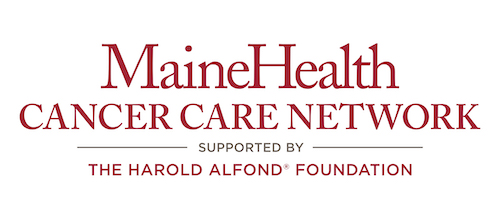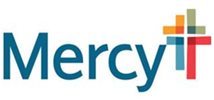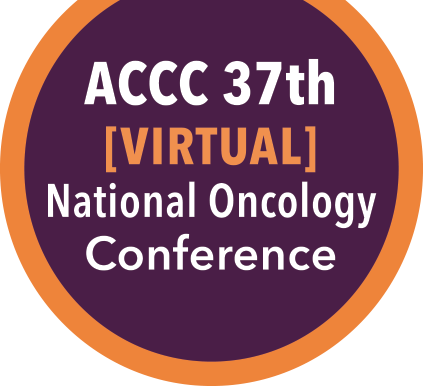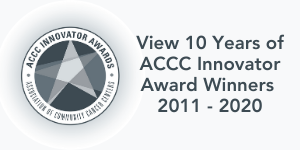
Beaumont Health System, Beaumont Cancer Institute
Integration of Prehabilitation, Rehabilitation and Prospective Surveillance Into Cancer Interdisciplinary Teams
Reyna Colombo, PT, MA, Director of Rehabilitation Services
Christopher Wilson, PT, DPT, DScPT, Residency Director, Oncologic Rehabilitation
Jannifer Stromberg, MD, Medical Director, Wilson Cancer Resource Center; Clinical Assistant Professor, Oakland University William Beaumont School of Medicine, Department of Radiation Oncology; Attending Physician of Radiation Oncology (Program Champion)
This session will be available to view via the Agenda tab starting Wednesday, September 16th at 8:00 AM ET. The live discussion will take place on Thursday, September 17th at 3:30 PM ET.
Learn how Beaumont Cancer Institute implemented these services and improved the patient experience, reduced hospital length of stay, and facilitated early identification of physical impairments, functional limitations, and/or treatment restrictions. Other key outcomes include reduction of cancer-related fatigue, lymphedema, and falls, and non-opioid pain management. Then hear about the important role rehabilitation played in palliative care for patients with advanced cancer by optimizing quality of remaining life and minimizing unwarranted hospital readmissions. Patient case-based scenarios and video vignettes demonstrate how to integrate and sustain these services into cancer care, including necessary training for team members.
ACCCBuzz Blog Post: Physical Therapists as Essential Members of the Cancer Care Team

Franciscan Health Cancer Center Indianapolis
A Nurse Navigator-Led Community-Based Cardio-Oncology Clinic
Vijay Rao, MD, PhD, FACC, FASE, FHFSA, Director, CardioOncology, Co-Director, Heart Failure Program and Anti-coagulation Clinic
Kerry Skurka, RN, BSN, Cardio-Oncology Nurse Navigator
Peter Garrett, MD, FACR, Medical Director of Cancer Services and Radiation Oncology (Program Champion)
THIS SESSION WILL BE AVAILABLE TO VIEW VIA THE AGENDA TAB STARTING WEDNESDAY, SEPTEMBER 16TH AT 8:00 AM ET. THE LIVE DISCUSSION WILL TAKE PLACE ON THURSDAY, SEPTEMBER 17TH AT 2:00 PM ET.
Hear how this program grew from manual chart mining to identify at-risk patients into a program sustained by robust referrals from providers looking for the specialized expertise of cardio-oncologists. Today Franciscan Health Cancer Center Indianapolis manages the cardio-toxic side effects of more than 1,000 cancer patients. Working in collaboration with medical oncologists and other members of the multidisciplinary team, the cardio-oncology team helps keep oncology patients in treatment and works to improve patient quality of life. Gain additional perspective from an educational video that chronicles a patient’s journey through the clinic.
ACCCBuzz Blog Post: Creating a Community-Based Cardio-Oncology Clinic

Maine Medical Center Cancer Institute
Leveraging a 3D Lung Nodule Educational Tool to Reduce Patient Distress
Theresa Roelke, MSN, RN, AGNP-C, Geriatric Nurse Practitioner
Gary Hochheiser, MD, Director of Thoracic Surgery; Medical Director, MMC Lung Cancer Screening Program; Co-Chair, Maine Health Thoracic Oncology Work Group; Board-Certified Thoracic Surgeon (Program Champion)
THIS SESSION WILL BE AVAILABLE TO VIEW VIA THE AGENDA TAB STARTING TUESDAY, SEPTEMBER 15TH AT 8:00 AM ET. THE LIVE DISCUSSION WILL TAKE PLACE ON THURSDAY, SEPTEMBER 17TH AT 1:30 PM ET.
Maine Medical Center Cancer Institute explored use of a 3D-printed nodule tool to help providers educate patients and engage in shared-decision making about this commonly reported lung lesion. Their study goals were twofold: evaluate if the tool reduced patient distress after a lung nodule finding and evaluate if the tool improved patient understanding of lung cancer risk. Data showed that using this type of 3D educational tool as part of shared decision-making facilitates high quality communication, improves patient knowledge about malignancy risk, reduces emotional distress, and improves quality of life. Hear how this type of educational tool can improve patient care at your program or practice.
ACCCBuzz Blog Post: 3D Model Helps Ease Patient Distress

Mercy Cancer Care
Reducing ED Visits and Hospital Admissions after Chemotherapy with Predictive Modeling of Risk Factors
Michelle Smith, DC, Director Oncology Services
Jay Carlson, DO, Mercy Ministry Oncology Specialty Council (Program Champion)
THIS SESSION WILL BE AVAILABLE TO VIEW VIA THE AGENDA TAB STARTING WEDNESDAY, SEPTEMBER 16TH AT 8:00 AM ET. THE LIVE DISCUSSION WILL TAKE PLACE ON THURSDAY, SEPTEMBER 17TH AT 2:30 PM ET.
After conducting a retrospective review to identify clinical variables associated with increased risk of hospital admissions and emergency department visits, Mercy Cancer Care used these data to develop and implement a predictive algorithm that stratifies patients according to their 30-day risk of both events. A daily dashboard report identifies all patients as high, intermediate, or low risk. These dashboard risk scores are then used to proactively manage patients with referrals to services such as social work, dietitian, or evaluation for possible home care assistance. Ultimately, this QI initiative effort will allow proactive management of patients within 30 days of their outpatient chemotherapy—the OP 35 bundling payment initiative that CMS put into effect this year under its Hospital Outpatient Quality Reporting Program.
ACCCBuzz Blog Post: Reducing Readmissions After Chemotherapy

Miami Cancer Institute, Baptist Health South Florida
Onboarding Experienced Non-Oncology Nurses to Address Staffing Shortages: Development of a Transitional Oncology Training Academy
Hollie Gow, DNP, APRN, ACNP-BC, CCRN, PCCN CPHQ, Director of Professional Nursing Practice & Performance Improvement
Marguerite Rowell, MSN, MBA, MSM/HM, ONC, SCRN, Assistant Vice President of Nursing
Michele Ryder, MSN, MSHSA, RN, CENP, Cancer Program Administrator (Program Champion)
This session will be available to view via the Agenda tab starting Tuesday, September 15th at 8:00 AM ET. The live discussion will take place on Thursday, September 17th at 12:00 PM ET.
This 12-week academy at Miami Cancer Institute gives nurses the knowledge and skills they need to successfully transition to radiology, blood and marrow transplant, outpatient infusion oncology, and Phase I/II research on a Precision Medicine Unit. Expert nurses and Master’s-prepared oncology educators provide hands-on orientation to entity-specific policies and procedures; training on core oncology nursing skills, such as central line care and maintenance, port access, safe drug administration, and hazardous spill clean-up; and preparation for the ONS/ONCC Chemotherapy Immunotherapy Certificate. Individualized preceptors work side-by-side with academy nurses upon transition to their units.
ACCCBuzz Blog Post: Meeting the Demand for Oncology Nurses

St. Luke's Cancer Institute
Improve Oral Oncolytic Workflow and Reduce Treatment Delays with a Pharmacist Collaborative Practice Agreement
Amanda Wright, PharmD, Oncology Pharmacist
Julia Kerr, PharmD, Medically Integrated Pharmacy Program Coordinator (Program Champion)
THIS SESSION WILL BE AVAILABLE TO VIEW VIA THE AGENDA TAB STARTING TUESDAY, SEPTEMBER 15TH AT 8:00 AM ET. THE LIVE DISCUSSION WILL TAKE PLACE ON THURSDAY, SEPTEMBER 17TH AT 1:00 PM ET.
Learn how a pharmacy resident project supported the creation and implementation of an oral oncolytic collaborative practice agreement (CPA) that expanded pharmacist scope of practice, decreased turnaround time for processing prescriptions, improved provider satisfaction, and decreased patient prescription costs. Today, St. Luke's Cancer Institute’s CPA allows pharmacists to sign prescriptions on behalf of providers for interventions such as renal or hepatic dose adjustments, dose rounding, renewal of prescription refills, adjustment for toxicities, dosing based on appropriate indication, and the ordering of laboratory tests and/or exams.
ACCCBuzz Blog Post: Pharmacists Expand Role in Collaborative Practice Agreement

Tennessee Oncology
Utilizing Technology to Identify Patient Co-Morbidities and Reduce Hospital and ED Admissions
Larry Bilbrey, Care Data Systems Manager
Johnetta Blakely, MD, MS, MMHC, Executive Director of Health Economics and Outcome Research; Chairwoman, Performance Improvement Committee (Program Champion)
THIS SESSION WILL BE AVAILABLE TO VIEW VIA THE AGENDA TAB STARTING TUESDAY, SEPTEMBER 15TH AT 8:00 AM ET. THE LIVE DISCUSSION WILL TAKE PLACE ON THURSDAY, SEPTEMBER 17TH AT 12:30 PM ET.
After analysis of Oncology Care Model data identified three comorbid illnesses that led to significantly higher rates of unplanned emergency department (ED) visits and hospitalizations—COPD, congestive heart failure, and diabetes mellitus—Tennessee Oncology developed targeted management algorithms that proactively addressed these conditions. Today care coordinators use these algorithms to screen, identify, and help manage at-risk patients via the care management platform, either by patient-initiated contact, such as telephone triage, or through a patient health portal, depending on the patient’s access and comfort with this technology. For patients admitted to the ED or hospital, admission software provides real-time data to the practice to improve patient management and reduce length of stay and readmissions.
ACCCBuzz Blog Post: Hospital Event Platform Better Monitors Patient Care

University of Arizona Cancer Center, Banner University Medical Center Tucson
Shifting Chemo Administration from Inpatient to Outpatient Setting Improves Care and Reduces Costs
Ali McBride, PharmD, MS, BCOP, Clinical Coordinator, Hematology/Oncology
Daniel Persky, MD, Associate Director, Clinical Investigators; Therapeutic Development Program (Program Champion)
This session will be available to view via the Agenda tab starting Wednesday, September 16th at 8:00 AM ET. The live discussion will take place on Thursday, September 17th at 3:00 PM ET.
At the University of Arizona Cancer Center, Banner University Medical Center Tucson, a multidisciplinary team of physicians, pharmacy staff, finance specialists, social workers, nursing staff, and information technologists first identified chemotherapy regimens administered in the inpatient setting that could be safely administered in the outpatient setting, and then implemented a transition plan that included provider and patient education. Benefits included reduced inpatient medical resources and chemotherapy costs, decreased inpatient bed stay, lower infection rates, improved quality of life, and decreased overall cost of care—conservatively estimated at almost $6 million.
ACCCBuzz Post: Making Outpatient Chemo Possible

| Access Date | Quiz Result | Score | Actions |
|---|


